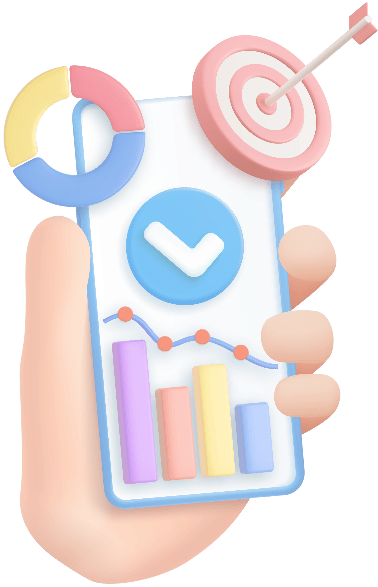
In today’s fast-paced, interconnected world, digital marketing has become an essential tool for businesses seeking to thrive in the competitive marketplace. As companies increasingly rely on digital channels to promote their products and services, understanding the primary goals of digital marketing is crucial to achieving success. From enhancing brand visibility to generating sales and customer loyalty, digital marketing encompasses a wide range of strategies that cater to various business needs.
Among the most prominent components of digital marketing are social media marketing and the role of the social media manager. Together with search engine optimization (SEO) and targeted campaigns, these strategies work in tandem to increase brand awareness, boost sales, and engage customers in meaningful ways. This article explores the primary goals of digital marketing with a focus on social media marketing, customer engagement, and growth, while keeping Google SEO standards at the forefront.
1. Increase Brand Awareness
One of the most significant goals of digital marketing is to increase brand awareness. With millions of potential customers engaging in online platforms daily, businesses must ensure that their brand is visible and easily recognizable. Social media marketing plays a pivotal role in this process by providing businesses with a platform to showcase their products, services, and unique selling propositions.
Social media platforms such as Facebook, Instagram, Twitter, LinkedIn, and TikTok allow companies to create a direct line of communication with their target audience. By sharing engaging content, such as videos, infographics, and blog posts, businesses can attract attention and foster a sense of community. A social media manager is crucial in ensuring that the brand’s voice and messaging remain consistent across all platforms, strengthening the company’s online presence.
SEO optimization further enhances brand visibility by ensuring that the company’s website ranks high on search engines like Google. By incorporating relevant keywords such as “social media marketing,” “digital marketing,” and “customer engagement” into website content, businesses can improve their chances of being found by potential customers.
2. Drive Traffic to the Website
Generating traffic to a company’s website is another core goal of digital marketing. Increased website traffic means more opportunities for businesses to showcase their products or services, generate leads, and convert visitors into paying customers. By utilizing SEO strategies such as keyword optimization, meta tags, and link-building, businesses can enhance their website’s ranking on Google and other search engines.
Social media marketing also plays a critical role in driving traffic to a website. By sharing blog posts, promotional offers, and product updates on social media, businesses can encourage followers to visit their website and explore their offerings. A well-crafted social media strategy that includes engaging content and call-to-action buttons can lead to higher click-through rates, ultimately boosting website traffic.
Moreover, targeted paid advertising campaigns, such as Google Ads and social media ads, allow businesses to direct specific customer segments to their website. These ads can be tailored based on user demographics, behavior, and interests, ensuring that the right audience is being driven to the website.
3. Generate Leads and Sales
Lead generation and sales are at the heart of every business’s digital marketing strategy. Effective digital marketing helps businesses attract potential customers and convert them into leads, and ultimately, paying customers. Social media marketing is a powerful tool for engaging prospects and nurturing them through the sales funnel.
For example, social media platforms enable businesses to create promotional campaigns that offer value to users, such as free guides, exclusive discounts, or free trials. These offers entice users to share their contact information, allowing businesses to follow up with targeted emails or further promotions. A social media manager can strategically manage these campaigns, ensuring that the messaging resonates with the audience and encourages lead generation.
In addition to social media, email marketing plays a vital role in converting leads into customers. Once a business captures a prospect’s contact information, they can nurture the relationship through personalized email campaigns that provide value and prompt action, such as making a purchase or booking a consultation.
4. Enhance Customer Engagement
Building a strong relationship with customers is key to long-term business success, and social media marketing provides businesses with the tools to engage directly with their audience. Through consistent communication and interaction on social platforms, companies can foster customer loyalty, respond to inquiries, and address concerns.
Social media managers play an important role in maintaining customer engagement by promptly responding to comments, messages, and mentions. They also create interactive content such as polls, contests, and live streams that encourage user participation and deepen the connection between the brand and its followers.
Furthermore, creating valuable and informative content helps businesses establish themselves as thought leaders in their industry. By sharing expert insights, how-to guides, and industry news, companies can build trust and credibility with their audience. Engaged customers are more likely to become repeat buyers and advocates for the brand, sharing their positive experiences with others.
5. Boost Customer Loyalty and Retention
Customer loyalty is another crucial goal of digital marketing. Satisfied customers are more likely to return for future purchases and recommend the brand to others. Through personalized content, exclusive offers, and loyalty programs, businesses can retain existing customers and encourage repeat business.
Social media is an excellent platform for implementing loyalty strategies. Businesses can reward loyal customers with exclusive discounts, early access to new products, or members-only events. Additionally, by celebrating customer milestones or thanking them publicly for their support, companies can create a sense of belonging and appreciation.
Email marketing is another effective tool for maintaining customer loyalty. Regular newsletters that provide value, such as updates on new products or special offers, keep customers engaged and connected with the brand. Automating these emails based on customer behavior or purchase history allows businesses to stay top-of-mind without requiring constant manual effort.
6. Analyze Performance and Optimize Campaigns
A key benefit of digital marketing is the ability to track and measure the performance of campaigns in real-time. Using tools like Google Analytics, businesses can monitor website traffic, conversion rates, and user behavior. This data provides valuable insights into which strategies are working and where improvements can be made.
For social media marketing, platforms like Facebook, Instagram, and Twitter offer analytics that allow businesses to track engagement, impressions, and click-through rates. This data helps social media managers adjust their strategies to better resonate with the target audience.
By continuously analyzing campaign performance, businesses can optimize their marketing efforts for better results. For instance, they can refine their content strategy, adjust SEO keywords, or tweak their social media ads to increase their effectiveness.







